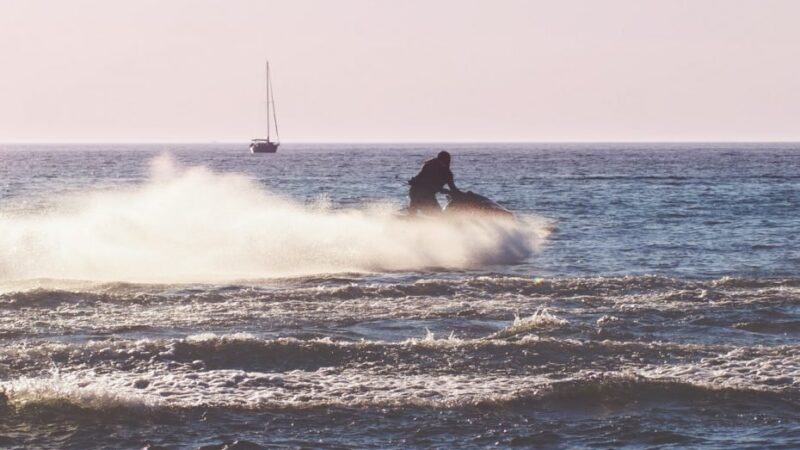Wakeboarders and wakesurfers will need to obtain special certification in portion of the Willamette River that includes Wilsonville

The Oregon State Marine Board is currently determining how it will translate mandates passed by the Oregon State Legislature into new rules that will affect boaters in the congested section of the Willamette River near Wilsonville known as the Newberg Pool.
The main successful legislation relevant to the Newberg Pool is House Bill 2352, which mandates that boaters who want to perform towed water sports like wakeboarding and wakesurfing from river mile 30 to 50 (roughly from West Linn to Newberg) receive a watersports education certificate by taking a boater safety class and then passing an examination (or just passing the examination without taking the class). The purpose of the bill is to make wakeboarders and wakesurfers more aware of the rules and the impacts that such activities can have on riverfront properties, shoreline erosion and other recreators.
Oregon State Marine Board Boating Safety Program Manager Randy Henry said the specifics of the program have yet to be determined. However according to draft language of the new rules, boaters will have to answer at least 70% of questions correctly to pass the examination and, in turn, receive a Towed Water Sports Safety card and decals that boaters must place on their boat to indicate they have obtained the certificate. The card would cost $60 but the Marine Board would also allow the contractor that provides the course to charge up to $80. Henry was not sure yet whether the class and exam would be available online but said the exam would be available at locations in Wilsonville and Oregon City. The new rules are slated to go into effect Jan. 1 2020.
“It’s (the class and exam) going to be wakeboard and wakesurf specific and specific to the Newberg Pool and specific to regulations down there and (there will be) content related to wake management and operating etiquette when you are on that waterway,” Henry said.
Henry said funding will be one of the main challenges of pulling off the initiative. The Marine Board needs to collect enough money from certification fees both to facilitate the class and exam and, as stipulated in the legislation, leave some money for increased law enforcement to make sure the rules are being followed.
However, Henry is concerned that only a relatively small number of people will actually purchase the endorsement. And he said these factors could make the possibility of creating an online program for the endorsement too costly.
“We have to balance implementing the program fairly with making sure the users pay for the entire program,” Henry said. “I can’t divert money from other programs to pay for this. That’s why we are looking hard at the financial challenge of doing an online course.”
Also via the legislation, the Marine Board will collect information about a boat’s make, model, length, dry gross weight and maximum factory ballast capacity. Relatedly, the new rules may also include the establishment of a maximum loading weight, which is the sum of a boat’s weight and factory ballast capacity, of 10,000 pounds for towed water sports in the Newberg Pool.
“That’s one of the really hard things is that (weighing boats) is literally not available to us. The owners will be responsible for figuring out how much their vessel weighs based on dealer information,” Henry said.
Henry said the bill is opaquely worded in sections, which has made creating new rules based on the legislation challenging. For instance, it doesn’t clearly state who needs to receive the certification. It just says people “engaging” in wake enhancement activities must obtain it.
“Is that the person behind the boat, holding the flag, operating the boat? Some of that isn’t really clear,” he said.
That proposed rule has not been submitted and draft language may be tweaked before it is. Once it has been filed, there will be a public comment period and public hearings.
Along with formalizing the rule changes, the Marine Board is also currently analyzing the effectiveness of other rule changes that created zones for different recreators in the Newberg Pool and banned wakesurfing in certain sections. Those changes went into effect in February.
Henry said he has heard from law enforcement officials that the rules have caused wakeboarders and wakesurfers to leave the Newberg Pool for other parts of the river but that the Marine Board did not have data to prove that claim. He has also heard that many people recreating the river aren’t familiar with the rules.
“We have talked to a lot of people. We’ve put up new signage, handed out thousands of flyers. We find that a number of the people who come to recreate on the Newberg Pool are visitors and (we) recognizing that understanding the new rules is a challenge so we make a lot of contacts, do a lot of education and are issuing a fair number of citations,” he said.
Staffers will present a report on how the rule changes are going to the Board during a meeting in October.
Henry wondersif the boater safety program and the new rules for the river would work well together.
“This is the first season of implementation of a complex set of regulations and now we’re overlaying the mandatory endorsement on top of that. This new endorsement is fairly restrictive, and that raises questions about existing rules,” Henry said. “Are they necessary? Can they work with the new education requirement? I don’t know.”
Other bills passed by the Legislature will allow the Marine Board to create rules that mitigate shoreline erosion and impose a requirement that operators of non-motorized boats over 10 feet in Oregon must obtain a waterway access permit. An annual permit will cost $17 and permit revenue will go toward a grant program for public entities, nonprofits and tribal leaders to use for initiatives such as boater safety education, purchasing boating equipment and reducing barriers to boating activity. Another bill will nix a law that exempted out-of-staters from needing to receive a boater education card for 60 days.
For more information about rule changes, visit https://www.oregon.gov/OSMB/Pages/index.aspx.
Quality local journalism takes time and money, which comes, in part, from paying readers. If you enjoy articles like this one, please consider supporting us.
(It costs just a few cents a day.)







Recent Comments